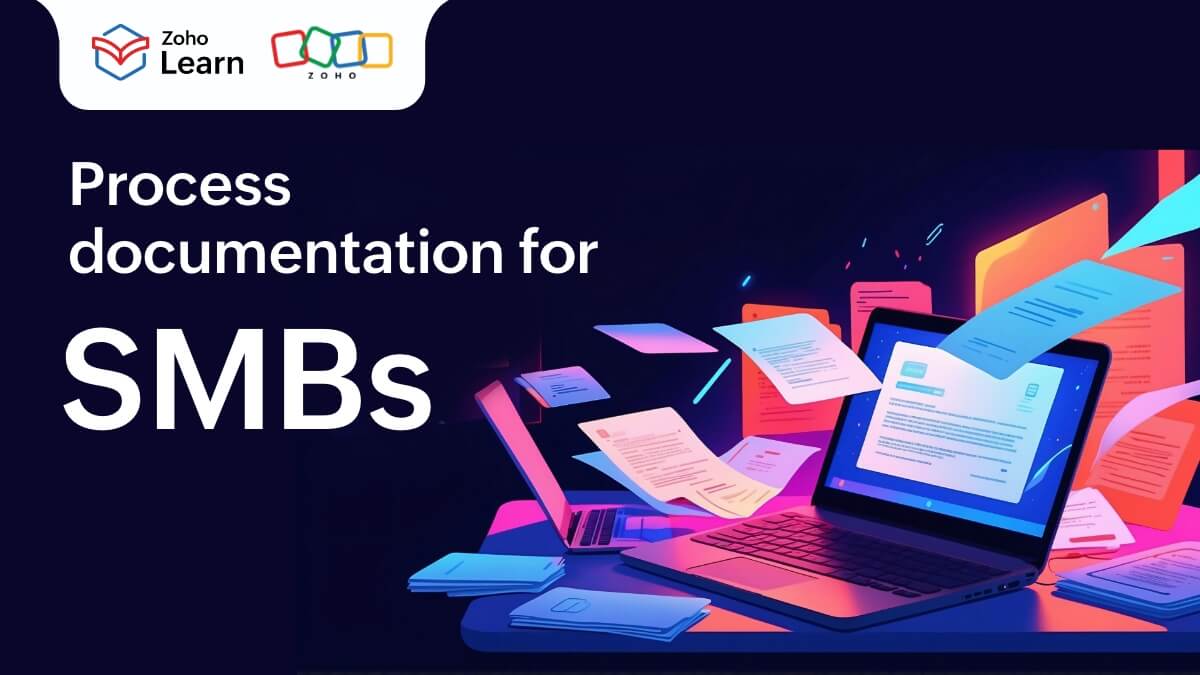- HOME
- Knowledge Management
- Internal wiki 101: Benefits and features
Internal wiki 101: Benefits and features
- Last Updated : September 2, 2024
- 324 Views
- 4 Min Read

Do you want to find all of the project information in one place?
Do you want the minutes of the team meeting that you missed on Friday?
Do you want to comment on the design of a new project?
Use an internal wiki to find answers to these questions and more.
What is an internal wiki?
An internal wiki is an exclusive space to share and store critical company information. Acting as an internal knowledge repository, internal wikis are typically managed and organized by all employees of an organization. It acts as the company's long-term memory and a single source of truth for all employees, creating a culture of knowledge sharing and collaboration. Simply put, internal wikis are the company's very own Wikipedia.
Types of content that can be stored in an internal wiki tool
Internal wikis comprise a wide range of important information because it functions like an internal knowledge repository. Some of them are:
Standard operating procedures (SOPs)
HR policies and organizational rules
Company news and updates
Onboarding process documentation
Employee and client information
Past, present, and future product updates
Minutes of meetings
Benefits of having an internal wiki
Recent research shows that 60% of employees find some level of difficulty in obtaining the information that they need to do their jobs. Internal wikis will solve this issue. But the benefits of internal wikis don't stop there. Some of the key benefits of having an internal wiki are discussed below.
Drives collaboration among employees
One of the most common benefits of an internal wiki is collaboration. Because it’s a centralized knowledge space, employees in different departments and locations can collaborate and exchange information. This leads to innovation and creativity among individuals and teams.
Streamlines knowledge storage and increases employee efficiency
Having an internal wiki will give access to necessary documents like how-to guides and troubleshooting manuals, saving time and reducing work duplication. The streamlined knowledge storage achieved by internal wikis increases employee efficiency and productivity.
Supports employee onboarding
New employees might have numerous questions about their roles, offerings, and the company, and spend a substantial amount of time searching for answers to their questions. Having an internal wiki is useful for new employees because they can find all of the necessary information within a single click so they can work more efficiently.
Centralizes management of company knowledge
Internal wikis help create an organized structure and centralized management of information. This ensures a sense of transparency between the heads and the employees of an organization.
Decreases information loss
The specific knowledge created by an employee gets lost when they leave the organization. This leads to loss of useful information. With internal wikis, you can reduce information loss and strengthen information security.
Essential features to look for in an internal wiki tool
Ease of use and navigation
It's imperative to look for easy navigation in an internal wiki because it won’t add to the complexity of employees' work. Internal wikis with an hierarchical structure and categories play a key role in this scenario. Responsive design with multi-device compatibility ensures ease of use and accessibility of information for employees.
User-friendly authoring
A major part of building an internal wiki involves the use of authoring and editing tools. Make sure that you choose an intuitive WYSIWYG editor that enables employee efficiency in creating, updating, and editing content.
Powerful search function
The search function is an important feature of an internal wiki tool because it’s directly related to the reader experience. Ensure that the search function is powerful and has several features like autocomplete suggestions, full-text search, and filters.
Tagging
Tags are keywords assigned to a particular piece of content that enables categorization and enhances searchability for the users. Tags facilitate easy and personalized navigation by allowing access to information on various topics.
Linking across articles
Interlinking across articles is an amazing feature to have in your internal wiki because searching for data will be faster and easier. Interlinking then creates a web of interconnected knowledge that helps users deepen their knowledge of different topics.
Role-based access and information history
A good internal wiki provides access control to not just add, edit, and delete users from the wiki but also assign roles and permissions that are customizable for different users. You can give specified employees access to edit or update the knowledge base. By using features like version history, users can trace the updates on an article and choose the particular version of information that they need, preventing loss of data.
Branding capabilities
Easy search and navigation might not be enough to build a good internal wiki because intrigue comes with branding and design. Add your brand name and logo and customize the wiki that creates interest for your employees.
User feedback
User feedback is crucial in every product or service, but it’s especially important in an internal wiki because they’re created for the users’ convenience. Ensure that employees explore and collaborate on all aspects of their internal wiki and get constructive feedback from them to improve the organization’s internal wiki experience as a whole.
Wrapping up
A structured and dynamic internal wiki can move mountains for your organization because it bridges the gap between employees and knowledge attainment while streamlining business operations. Consider the features listed above, make use of the trial period in wiki software, and choose the internal wiki tool that’s the best fit for your organization.
 Kirthana V
Kirthana VA true believer of "The pen is mightier than the sword", Kirthana is a literature lover turned content writer.
With a background in Economics and English, she hopes to bring her analytical and creative side together to deliver authentic pieces of work.










